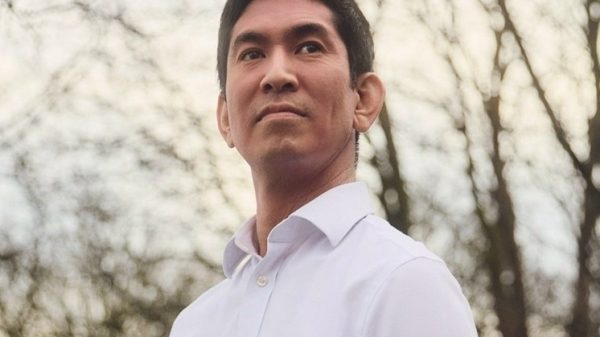 The South African cricket team is yet to reach the World Cup final after scoring 16 tries in ODI and T20 formats. Photo: AP/Aijaz Rahi
The South African cricket team is yet to reach the World Cup final after scoring 16 tries in ODI and T20 formats. Photo: AP/Aijaz Rahi
It's not in the genes. The players mostly come from the same schools; many of them are childhood friends. But at the World Cup, one group is seen as a powerhouse team that thrives under pressure, while others are derided as chokers.
Such is the reputation of the South African rugby and cricket teams at the World Cup. Having won the quarter-finals, semi-finals and final by one point, the Springboks have now won four of the last eight Rugby World Cups. However, the South African cricket team Proteas are yet to reach the final in their 16 previous attempts at the ODI and T20 World Cups.
In explaining these different fortunes, «one thing we shouldn't forget is just luck, pure luck,» says 2019 Rugby World Cup winner Shulk Brits. The difference between a Springboks victory and a Proteas defeat was often painfully small.
The first World Cups after readmission put the Springboks and Proteas on very different paths. The Springboks again won their first Rugby World Cup. “The standard was set in 1995,” says François Louw, 2019 World Cup winner. “We believe this is where we belong.”
The third World Cup was a defining one for South African cricket. After knockout defeats in 1992 and 1996, there were already rumors about South Africa's ability to handle pressure. When the Proteas matched Australia's score in the 1999 semi-final, Allan Donald had «legs like jelly». Donald was eliminated from the game and the match ended in a draw; South Africa were eliminated after finishing below Australia in the previous round.
 Australia pulled off an incredible semi-final victory over South Africa en route to the 1999 World Cup. Photo: Getty Images/Adrian Murrell
Australia pulled off an incredible semi-final victory over South Africa en route to the 1999 World Cup. Photo: Getty Images/Adrian Murrell
Since then, the choker label has plagued South Africa like an unwanted rash. If Donald had not lost at Edgbaston, «it would probably have made things easier» for future teams, says Robin Peterson, who competed at the 2003, 2007 and 2011 World Cups. “This is the sliding door moment. If '99 had gone well, it feels like we probably would have added another cup or two to the trophy cabinet.»
“Stereotype threat” is the idea that groups perform worse when a negative image is associated with them. For example, a study found that when students were told that men and women performed equally well on an arithmetic test, both sexes actually performed equally well. But when the girls were told that women tend to perform worse, they performed worse on the test than men. Awareness of a stereotype seems to influence whether people adhere to it.
The same thing happened with English football and penalty shootouts. “Of course you can't help but think of Southgate, Batty, Pearce, Beckham and Waddle, and all those terrible penalty misses in the past,” Ashley Cole later wrote of England's penalty defeat at the 2006 World Cup. “It lurks somewhere in your head, adding even more pressure and a bit of fear.”
For South African cricket teams competing in world tournaments, the concept of choking is a stereotype they can't shake. “We choked,” admitted head coach Gary Kirsten after a disastrous performance in the 2013 European Cup semi-final. He described previous failures as «a dark fog hanging over South African cricket.»
«The necklace is always mentioned.»
Choking, as scientists detail, is the inability to cope with anxiety and cope with the demands of a particular moment. , leading to a drop in productivity.
“That necklace always gets mentioned,” Peterson muses. “I think it really takes its toll on the players, although every group is different.
“Sometimes when you have that kind of pressure on you, you tend to isolate yourself from the group. I always had this feeling — that it almost became about individual self-preservation instead of banding together when the pressure was on.”
Peterson believes that the current World Cup squad is more open to talking about concerns and will not once again resort to self-preservation in knockout matches.
Opponents are never shy about reminding South Africa of this stereotype. In the 2011 World Cup quarter-finals against a relatively lowly New Zealand side, South Africa were 108-2, chasing 222 before collapsing. When he departed at No. 8, New Zealand told Peterson he was «not good enough» and, like his teammates, a «choker,» he recalls.
«You don't think it really affected you, but maybe as a collective it played some role because of our history.»
Peterson made a duck; South Africa slumped to 172 with star batsman A.B. de Villiers was involved in a disastrous relegation with his old teammate Faf du Plessis.
Awareness of this stereotype may, according to Peterson, lead south. Africa will do things differently in the knockout matches. In the 2007 World Cup semi-final against Australia, Jacques Kallis unusually advanced the wicket of Glenn McGrath in the sixth over — one of South Africa's five wickets in a frantic first 10 overs.
 South Africa's Jacques Kallis lost to Australia's Glenn McGrath in the 2007 semi-finals. Photo: AP/Aman Sharma
South Africa's Jacques Kallis lost to Australia's Glenn McGrath in the 2007 semi-finals. Photo: AP/Aman Sharma
“We were completely contrary to our strengths — I thought we were trying to match Australia in terms of aggressive play,” Peterson says. «Maybe because we haven't been successful before, you almost say, 'OK, let's try something different in a must-win game,' which went against the DNA of the team.»
For the Springboks, knockout sport brought very different results — and institutional know-how to get through tough moments. “You definitely take away the confidence of your predecessors—their exploits and the way they played and executed,” Lowe explains. “You want to be part of a group that does it again and lives up to those standards.”This is “stereotype lift”—the opposite of stereotype threat. Essentially, previous success creates an expectation of future success. “You can gain confidence by knowing that your team always wins,” explained Sian Beilock, cognitive scientist and author of Choking.
In high-octane situations, the Springboks held their own. collective confidence and trust in each other. Four years ago: «There's this belief — they did it in '95, they did it in '07,» Brits recalls. «When you're in a stressful situation like this, you have faith in the guy next to you.»
Springboks trust their template
While the South African cricket team sometimes deviated from their usual methods under pressure, the rugby team trusted their template. «We understand our DNA — we can't play like New Zealand,» Brits says. “It beats the living crap out of anyone who comes to our channel. Dominate the set piece, win the battle with your feet. And then focus on saving the package for when it matters most. It's a very simple game plan, but it's difficult to play against.”
Before the semi-final against Wales in 2019, then head coach Rassie Erasmus told the team: “This is how we have to play. If we lose, I will take responsibility — please just trust me.»
 South Africa captain Siya Kolisi lifts the World Cup in Paris this year after the Springboks retained their title. Photo: Getty Images/Anne-Christine Poujoula
South Africa captain Siya Kolisi lifts the World Cup in Paris this year after the Springboks retained their title. Photo: Getty Images/Anne-Christine Poujoula
With the score tied at 16-16 in the final 10 minutes, «You're doing things that should be second nature, you can't overanalyze or think too much in the moment, everything happens so quickly,» Lowe says. “Eventually, in this position, you get to the point where you look at the guys on either side of you and think, 'This is our moment.'”
“This never-say-die approach is part of this sustainability. I think it's inherent in South Africans and is an extremely large part of the Springbok DNA.»
Springboks have a simple acronym for these qualities: BMT — Big Competitor Temperament.
“How can you put aside the scale of these games and focus on your work?” Lowe asks. “You have confidence in your teammates that each of them individually will do the same thing so that together you can achieve the maximum result.”
Even in a World Cup final, Lowe explains, “you’re playing in another game. The difference is that the stakes are higher. But in terms of the actual pitching and execution on the day, nothing should change.”
And so when South Africa's cricketers line up against Australia, they won't just be playing in a World Cup semi-final. They will also have to deal with the most undesirable phenomenon in South African sport.
However, if history is an additional burden to overcome, it is not destiny. The All Blacks were called chokers during their 24-year wait for a second Rugby World Cup; they then won the Webb Ellis Trophy in 2011 and 2015.
When South African cricketers finally win the World Cup, they will not only end the country's endless wait; they will also ease the burden for future generations.






















































Свежие комментарии